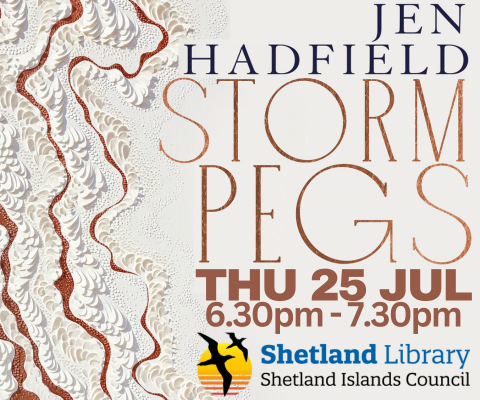Viewpoint / We Sood Be Prood o Wir Pride
This Saturday, the third annual Shetland Pride will take place and our author Hannah Nicholson is excited to be attending for the first time. Here she explains why.
FROM MY own experience as a queer person growing up in the isles during the 90s and early 2000s, I would never have imagined that Shetland would lay on its own Pride celebrations.
I was born in 1988 – the year Margaret Thatcher’s Tory government brought Section 28 into law, less than a month after my birth in fact. This law prohibited what they referred to as ‘promoting the teaching of the acceptability of homosexuality as a pretended family relationship’ in schools and through local authorities.
It was repealed in Scotland in 2000 and by England and Wales in 2003 by the respective Labour governments in charge, but it left a lot of damage in its wake, and no framework was immediately put in place to undo the harm it had caused – indeed, trying to do so has been a relatively recent development, and even then it’s proving slow.
In my case, this meant it had been abolished in time for me starting secondary school, but even it being present throughout primary had an effect on my education. Words like ‘lesbian’ and ‘gay’ were already being bandied around the playground as slurs at that time. Even in secondary, while it wasn’t strictly forbidden, neither was it really being incorporated into lessons, so things didn’t really improve.
In any case, coming out at that age in a small rural school would have come with a lot of risks, and even though I suspected I might not be straight I instead chose to live in complete denial about it. School was tricky enough to navigate without making it harder for myself. I would say I mostly learned about it from watching TV, reading the occasional feature in teen magazines (remember those?), and, of course, the internet, then still somewhat in its infancy.I remember Lily Savage presenting shows like the revival of Blankety Blank on a Saturday evening, as well as the press surrounding Stephen Gately of Boyzone when he was forced to come out in 1999.
Some years later, in 2005, Shetland playwright Grace Barnes brought her adaptation of Jackie Kay’s novel Trumpet – inspired by the life of transgender jazz musician Billy Tipton – to the stage, and I went to see it with the school along with other S5 and 6 pupils at both the high schools. It was a brilliant play and a compelling story that stayed with me for a long time after.
There were also some queer people who actually lived in the isles, but no-one I knew particularly well, or so I thought at the time anyway – some people in my life, including others I was at school with, came out later.
When I was finished with school I moved to Glasgow to study at the University of Strathclyde and met a wider range of people, including other members of the LGBTQIA+ community, who were open and comfortable in their identities, and in some cases had even come out at school.
My best friend from my undergraduate days was open with me very early on about her bisexuality, and I admired that, mainly because I also suspected I was bisexual. I wasn’t hugely public about this, though, and with hindsight that’s because it didn’t entirely fit me.I was in my mid-twenties when I properly discovered asexuality, at least as it applies to humans, because in school I was only ever taught it applied to plants. I couldn’t even really pinpoint the ‘eureka’ moment in this case, but the more I read about it, the more I realised it sounded like me.
I came out publicly in late 2017, when I was 29 and a postgraduate student at Robert Gordon Uni in Aberdeen, and in 2021 I attended Grampian Pride for the first time.
While I’m more comfortable with my identity these days, I can’t help but feel that Section 28 deprived me of the chance to realise it sooner.
I therefore have no time or sympathy for people who complain about LGBTQIA+ education in schools, or how the mere existence of Pride is ‘propaganda’ or ‘shoving it down their throats’.
One could argue that Section 28 was heterosexual propaganda which was shoved down children’s throats for well over a decade and beyond, and it failed to turn queer kids straight. Teaching kids about LGBTQIA+ identities, therefore, won’t ‘turn them gay’, but it might cause them to become more accepting and compassionate people, and to learn that there’s nothing wrong with who they are.



















































